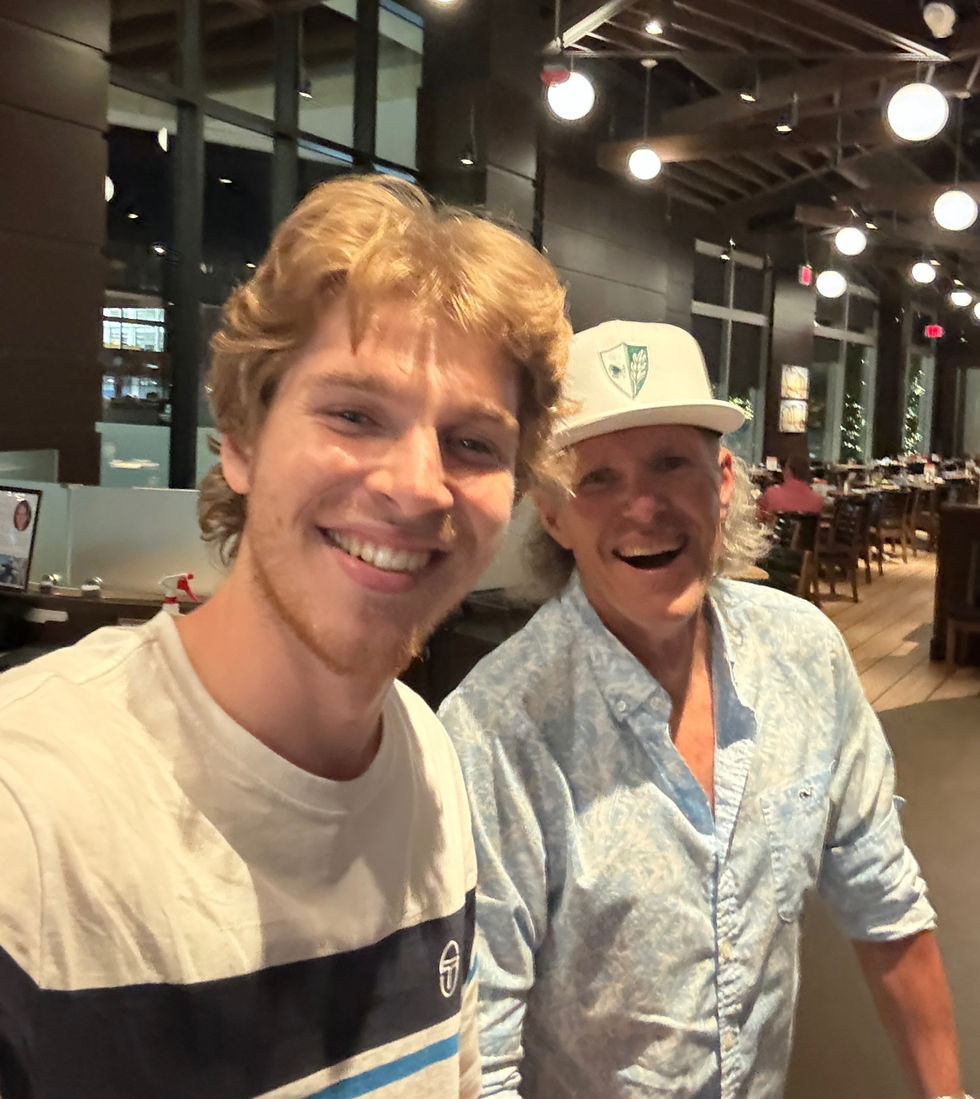13 Days in September
- pfq143

- Sep 16, 2019
- 4 min read
"You can barely walk. You can't sleep. Your balance is worse. You're so fatigued. You can't stand up. You can't function. You look frail. You're putting yourself in danger. I have to tell you what I see. I'm sorry."

She was right.
I had been hopeful about the clinical trial. Ampyra (Dalfampridine), aka "the walking drug," had been effective in helping some MS patients improve their walking.
"A Multicenter, 18-week Open Label Safety and Efficacy Trial of Dalfampridine in Primary Lateral Sclerosis," was the title on the consent form. "...We hope Dalfampridine will (help improve) walking ability and improve speed, endurance, and coordination (in patients with PLS)."
"Maybe, just maybe, this could be it," I secretly thought to myself. Who knows? Why not give it a try? What have I got to lose? Of course, there was the standard and seemingly endless list of potential side effects, including:
* Urinary tract infection
* Dizziness
* Headache
* Nausea
* Weakness
* Back pain
* Problems with balance
* Burning tingling or itching of your skin
* Irritation in your nose and throat
* Indigestion
* Pain in your throat
* Insomnia
Other, even more uncommon, side effects:
* Seizure
* Confusional state
There was also some verbiage on the possibility of more serious allergic reactions with more serious consequences. "That won't happen to me," I thought to myself. (And it didn't.)
There would be 8 visits to the hospital for various non-invasive test; each visit lasting 2 to 4 hours. But I look at those visits as opportunities for something special. Whether going to lunch or stopping for a cup of coffee or even if we have to race into and out of the city, at the very least I am able to spend time with someone. Time with someone-- a most cherished gift.
Most of the side effects on the list seem pretty manageable. And NONE of these side effects occurs in more than 10% of the people who take the drug, and the most serious one, a seizure, occurs less than 1% of the time. So the decision to give it a shot was pretty much a no-brainer for me. The numbers were in my favor, and with my optimism and the fact that I could drop out of the trial at any time if something went awry, the decision was easy. The cost/benefit, or rather the cost/potential benefit equation seemed heavily in my favor. After all, there is a chance...that I could walk normally...normally! (I have never before aspired to be "normal"...I should be so lucky.)
I was enthusiastically hopeful and cautiously optimistic. Hoping for the best but preparing for the worst. (OK, not really preparing for the worst.) In a couple weeks, I could be walking normally!
By day six or seven, I could no longer ignore the sensations. I was overcome with overall exhaustion and fatigue. My legs felt so weak. I felt like they could collapse at any given moment. I am embarrassed to say that I spent most of an entire day in bed, and then another. But I couldn't sleep...at all. And my absent balance was even more evasive. I was losing my ability to function.
I wasn't ready to give up. I could hang in there, I told myself, because there is always a chance that in a moment it could all do a 180; I'd wake up one morning and just like in my dreams-- I'd be able to walk, talk, run, write, and everything just like I used to! It would all come back. Miracles do happen! I will keep the faith; I will continue to believe; I will continue to hope. I will not give up. I am not a quitter!
I was hanging in there, and struggling; trying to go through my days as best I could. Trying not to give in to the medicine, which was pushing me, nudging me-- constantly reminding me that it was there. Tossing and turning through the night, stumbling at each step, I tried first to ignore and then to acknowledge and manage the silent manipulator. I was trying. I was strong. I was tough. I was suffering. I tightly held on to the dream; just maybe it will all turn around...
"Optimists are the least prepared for the loss of hope."
I read those words somewhere once and they stuck with me, probably because I think they are true. My side effects grew heavier and heavier with each day, and by day thirteen-- when Kim had to say those words, I had to listen. I had to hear them, reluctant though I was:
"You can barely walk. You can't sleep. Your balance is worse. You're so fatigued. You can't stand up. You can't function. You look frail. You're putting yourself in danger. I have to tell you what I see. I'm sorry."
I stopped. Time froze. My shoulders sagged. My head drooped. The pressure in my mind let go, relenting. She was right. I cannot go on like this.
"But what if it all turns around in another day, another week, or two or three? But what if...and but what if...," I continued, until the sound of my voice trailed off to eventual softness and then only air. That night, alone, I arrived at my decision. I would drop out of the trial; I would stop, but I would not quit.




Strength to you, my friend. And it's a sign of strength to know when to say Enough when something isn't working.